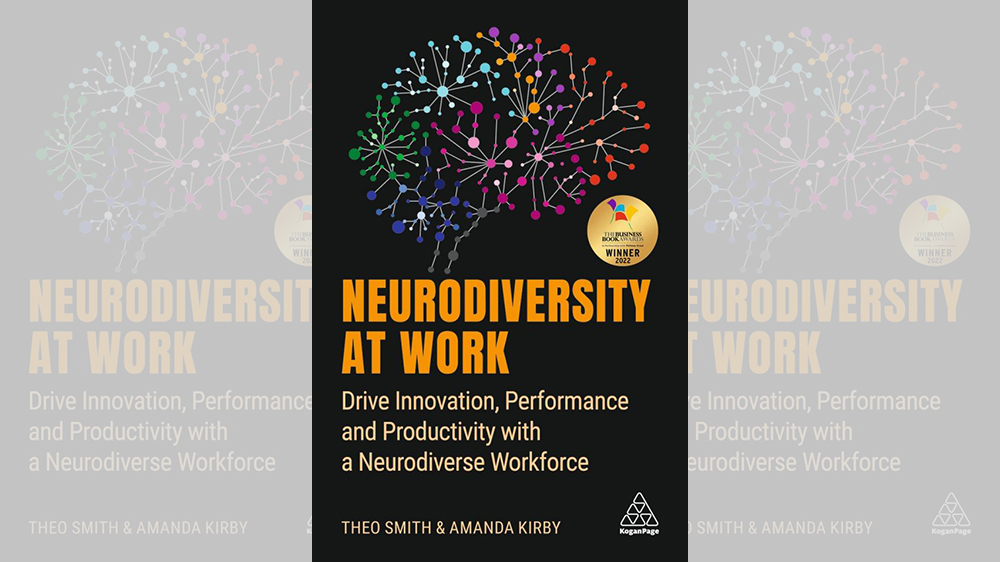
27 September 2023
We recently read Neurodiversity at Work by Theo Smith and Amanda Kirby, in the EMCC UK Conversations with Authors series. Philippa Eddie, Rachael Hanley-Browne and Hannah Butler write below with their thoughts and responses to the book.
Review by Philippa Eddie” ‘Extremely helpful in providing more context around the issues that neurodivergent people in the workplace may be facing.’
I came across this book late last year when it was recommended to me, and read it as background for my doctoral research into coaching adults with ADHD in the workplace. Neurodiversity at Work explains the importance of and benefits to organisations in valuing neurodiversity and neurodiverse talent. It encourages organisations to ensure that the environment they provide enables neurodivergent employees to thrive.
The book also considers the importance organisations have in changing society’s view of what an ideal employee looks like. It explores how to attract neurodivergent colleagues, and gives lots of practical suggestions around workplace adjustments, interview formats, IT support, and key legislation. It also offers lots of helpful references to other papers and books.
As a coach, I found Neurodiversity at Work extremely helpful in providing more context around the issues that neurodivergent people in the workplace may be facing. The actions I am taking forward are integrating this awareness into my coaching practice, and asking clients about the language they prefer.
Review by Rachael Hanley-Browne: ‘An excellent source of information, action and practical tips.’
Neurodiversity at Work is a practical book that looks at the topic from labels, descriptions, and definitions, through to applying neurodiversity and inclusion knowledge in workplace practices. These practices include recruitment, assessment, onboarding and inductions, through to workplace design. The book is well referenced, with lots of recommended additional reading.
I found the book’s definitions and glossary really useful, and it gave helpful data, such as the percentages of the population in each category. As someone with dyscalculia it was helpful to know that only 6.4% (I had to check that a few times!) of the population are affected. It explained a lot about my own educational and work experiences. I am sad that this was never picked up at school.
It is insightful to know that there are often no tests or specific diagnoses for many types of neurodiversity, and that the ranges of individual experience are vast. Therefore, we must be curious and seek to understand each other, not just put people in boxes. For me, this goes back to the ability to ask first and listen – emphasising how incredibly important coaching skills are for managers and leaders.
Neurodiversity at Work is an excellent source of information, action and practical tips. It reminded me how important it is to give clients the opportunity to talk about neurodiversity and not to avoid this conversation or shut it down too quickly. Also, that we need to be clear about definitions and descriptions, but hold them lightly and allow our client to guide the way we work together.
This means allowing adjustments and adaptability in our working patterns to get the most out of our coaching relationship – for example, using the phone rather than Zoom, making the sessions shorter, and understanding lateness. I am sure that I will dip in and out of the book many times for reference material and additional reading.
Review by Hannah Butler: ‘The book has invited me to consider the role I play in DEI and to what extent I show up and do the necessary work.’
This book couldn’t have come at a better time for me personally and professionally, as I grapple with my role in supporting a fairer society and what it means to be active in the DEI space.
At a personal level, I observe the impact of polarisation and the principles of worthiness in our society. This book has invited me to consider my practices as a coach and business owner, and has asked me to consider the role I play in DEI and to what extent I show up and do the necessary work.
Written in 2020, Neurodiversity at Work offers hope, and is written in an inclusive way that avoids blaming and shaming us for previous use of strategies that may have excluded critical voices in society. It offers a gentle guide to how organisations may begin to consider their position in this space and the beneficial impact of a movement towards inclusivity.
Personally, it is a reminder of how important it is for me to remain attentive to the questions I need to return to again and again, and the work I need to attend to with deep and deliberate practice in mind.